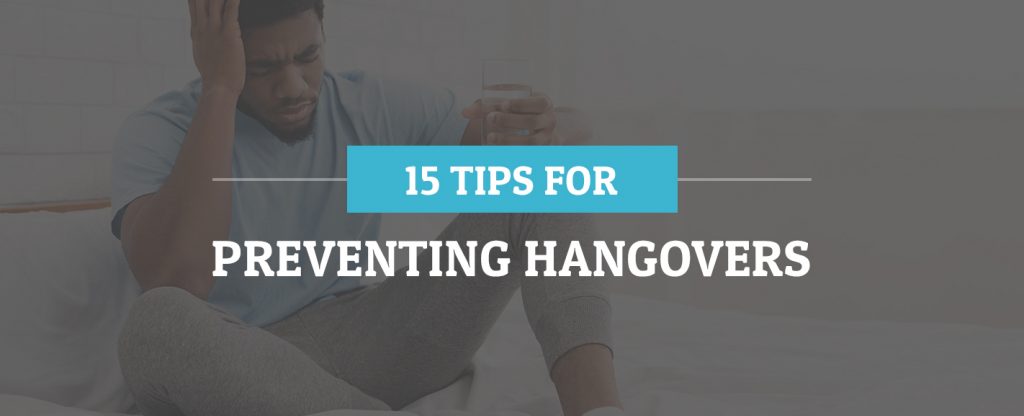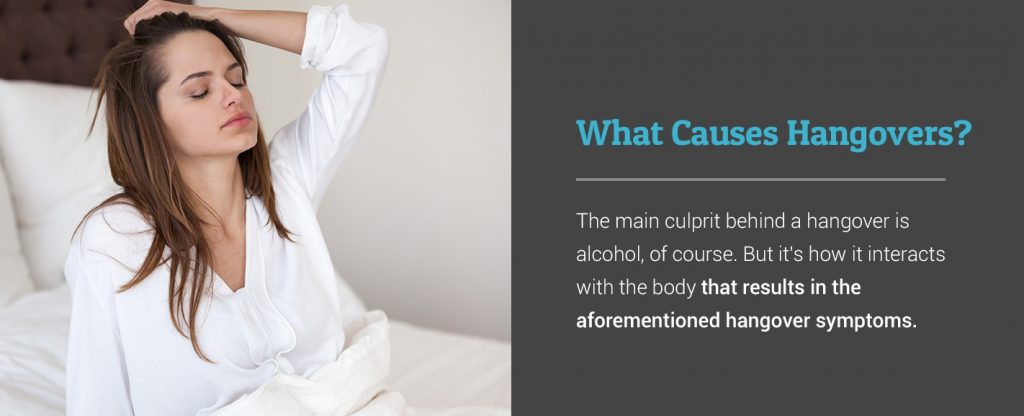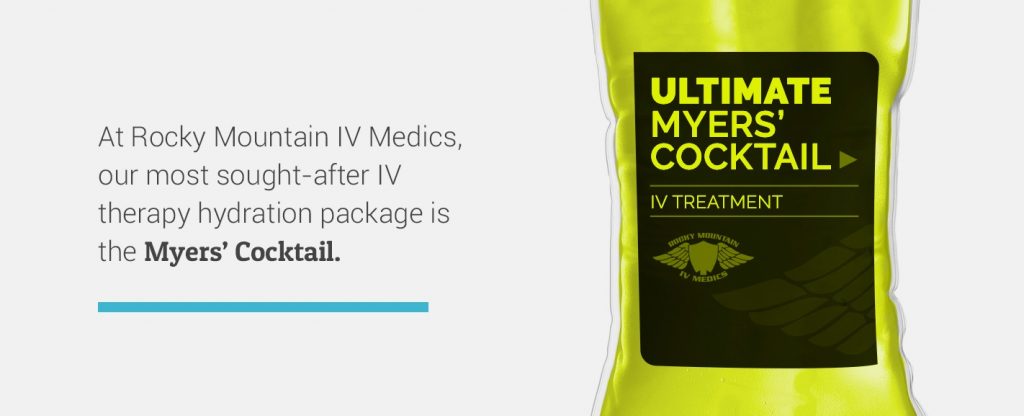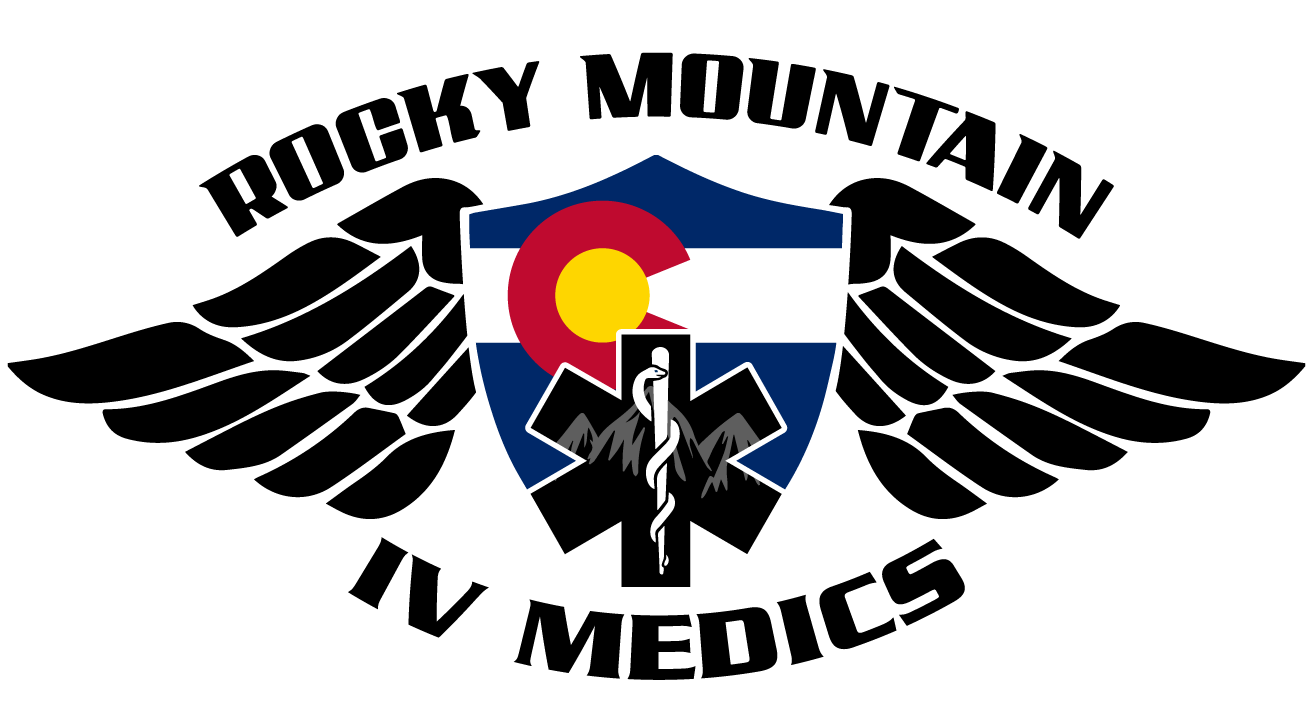15 Tips for Preventing Hangovers

Signs and Symptoms of Dehydration: What to Know
February 20, 2020
Benefits of Vitamins for Overall Health
March 23, 202015 Tips for Preventing Hangovers

Table of Contents
- Common Hangover Symptoms
- What Causes Hangovers?
- How to Prevent Hangovers
- Myers’ Cocktail Benefits
- Battle Hangovers With IV Therapy
A hangover is what some people experience the morning after a night of heavy drinking. Symptoms can include thirst, dizziness, fatigue, headaches or migraines, nausea and loss of appetite.
We get it — whether it’s catching up with friends at an event or enjoying a fun night out on St. Patrick’s Day, we all overindulge now and then. If you want to make the aftermath of an awesome night a bit more bearable, here are 15 of our top tips for preventing hangovers in the first place, or at least making them significantly less severe.
Common Hangover Symptoms
While preventing hangovers is the goal, it’s also important to know the signs and symptoms of a hangover, so you’re well-equipped for what to expect. While most hangover symptoms are more uncomfortable than dangerous, there are some — such as changes in cognitive function — which can become dangerous.
The most common hangover symptoms can include one or more of the following:
- Thirst: Alcohol is one of those substances that makes you need to urinate more often, which means your body loses fluids more rapidly. This fluid loss means you can feel extremely dehydrated and thirsty the day after a night of heavy drinking. If you’re drinking in an environment in which you’re also sweating or losing bodily fluids in other ways, you’re even more likely to be feeling thirsty the morning after.
- Nausea: Alcohol can force your stomach to produce more and more acid while simultaneously keeping it from emptying, causing nausea or even vomiting. Stomach aches are also a common occurrence during a hangover.
- Headache: When you drink, your blood vessels expand. At first, this is a great feeling since it lowers your blood pressure and makes you feel calmer. However, when blood vessels continue to expand — which they do as you continue to drink — they create pressure, which results in headaches or even migraines.
- Sluggishness: Alcohol gets your blood flowing, and sometimes this flow is directed towards your pancreas. This causes your pancreas to create more insulin, which lowers your blood sugar and makes you feel weak and exhausted.
- Lack of concentration: Because alcohol dehydrates you, you may end up experiencing the symptoms of dehydration, which include an inability to focus on tasks.
- Mood swings: Since alcohol can make your blood sugar levels go up or down, it can lead your mood to go up and down as well. People who have existing mental illnesses are more likely to feel these mood swings both during and after drinking alcohol. People who have a dependency on alcohol could express more aggression and anger.
- Changes in cognitive function: A hangover can lead you to feel less alert, make you forget things and even leave you unable to think logically.
- Increased heart rate: Your blood flows more quickly when you’re consuming alcohol, which can increase your heart rate as well. Some studies have shown that the more you drink alcohol, the more your heart rate increases. Increased heart rates also increase your risk of developing arrhythmia, or irregular heartbeat.
- Decreased sleep: Studies show that for the average person, drinking a little bit of alcohol can actually improve sleep. However, too much alcohol ends up interfering with the sleep cycle, particularly in the second half of the cycle. The lack of sleep at night then makes you feel groggy and sleepy throughout your day.
Hangover symptoms aren’t the same for everyone, and some may experience them more severely than others. The person’s mental and physical health, the amount of alcohol consumed and how responsibly they drank all contribute to the severity of the hangover. And hangover symptoms aren’t uniform for each person either, so you may experience nausea during one hangover and headaches during the next.
What Causes Hangovers?

The main culprit behind a hangover is alcohol, of course. But it’s how it interacts with the body that results in the aforementioned hangover symptoms.
Dehydration, inflammation and gastrointestinal irritation are three of the main causes of hangovers, which occur directly from consuming alcohol.
As mentioned, alcohol is a diuretic, which means it forces your body to expel more fluids than it takes in, leaving you dehydrated. Excessive thirst can cause headaches and fatigue. Alcohol also forces your body to experience inflammation, which can cause feelings of overall fatigue and depressed moods. The increased production of stomach acid that alcohol causes leads to the gastrointestinal discomfort that many feel during a hangover, including vomiting and stomach aches.
Another cause of hangovers is withdrawal from alcohol. When you’ve been drinking, your body gets used to the effects of alcohol, which makes you feel calm and relaxed. The brain begins to adjust to this new normal. When the body ceases to get the alcohol it has gotten used to, the brain tries to readjust, resulting in some people feeling more restless or anxious than they did before they started drinking.
Since so many symptoms of hangovers are directly related to the effects of alcohol on the body, some of the best ways of preventing hangovers involve reducing the effects of alcohol on the body.
How to Prevent Hangovers
The symptoms of a hangover are never pleasant and prevention is often better — and easier — than the cure. To help prevent even the worst of hangovers:
1. Drink enough water
Even if you have to alternate every other alcoholic drink with a glass of water, staying hydrated throughout the day — or night — can go a long way toward preventing a hangover the next day.
2. Get enough sleep
Getting plenty of shut-eye after heavy drinking is one of the best ways to help your body recover.
3. Eat a greasy breakfast
Fueling up at breakfast time with foods high in fat will help prevent a hangover after an evening of drinking. Fatty foods like avocados delay the absorption of alcohol in the body. After breakfast, make sure you are eating throughout the day to stave off those hangover symptoms later.
4. Watch what you’re drinking
By sticking to one drink, you can better keep track of how much you’re consuming. Plus, you’ll be less likely to upset your stomach.
5. Avoid congeners and carbonation
Congeners are the compounds that give liquor its color and flavor, and many convert to toxic aldehydes the next day as your body digests them. Stick to alcoholic beverages that contain fewer congeners — these are typically lighter in color, more expensive and highly filtered. Also, try to steer clear of carbonated beverages because the carbonation can cause the surface area of the stomach to expand, which leads to increased alcohol absorption.
6. Eat eggs, honey and bland carbohydrates
Bland carbohydrates will combat nausea, provide sugar and help absorb any alcohol left in the stomach. Also, honey is an excellent choice because it’s loaded with fructose, and eggs contain N-acetyl-cysteine, a chemical that helps clear the liver of harmful free radicals.
7. Try milk thistle
The active ingredients in milk thistle help detoxify the liver.
8. Take Pepto-Bismol
Pepto-Bismol is great for replenishing electrolytes, easing stomach discomfort and relieving heartburn.
9. Enjoy some onion soup gratinee
This soup presents the perfect combination of sugar and dairy to prevent a possible hangover. While the cheese will slow alcohol’s entry into the bloodstream, the sugar in the onions will burn the alcohol and speed up the body’s metabolism.
10. Drink fruit juices and Pedialyte®
To prevent a hangover after you drink, try drinking some fruit juice. The fructose in the fruit will help burn alcohol. Pedialyte® is also a great choice in that it replenishes electrolytes and sugars.
11. Know your limit
When it comes to preventing bad hangovers, knowing your limit is one of the best options. If you can avoid drinking, you can avoid the hassle of a hangover altogether, but if you do decide to drink, make sure you drink in moderation. Everyone’s tolerance is different and what could make one person a little tipsy could make another person extremely drunk. When in doubt, err on the side of caution and limit yourself to one drink per hour. Drinking slowly will prevent your body from absorbing the alcohol too quickly.
12. Keep your stomach full
When your stomach is full, it’s much harder for your body to absorb the alcohol. On an empty stomach, alcohol quickly goes right to your intestines and into your bloodstream, making you intoxicated far quicker. If you can’t eat before drinking, eat while drinking to ensure your body is getting more than just empty calories.
13. Engage in activities
If you’re a dancer, a night of drinking is a great time to cut the rug. It’s nearly impossible to dance with a drink in your hand, and enjoying an activity while drinking also makes you less likely to chug drink after drink in quick succession. If dancing isn’t your thing, games like ping-pong or pool work just as well to prevent hangovers.
14. Take herbal supplements
For some people, particularly those who may be prone to inflammation from drinking, taking herbal supplements — like red ginseng — might help reduce the inflammation, making for less discomfort of the potential hangover.
15. Get IV therapy
IV therapy does an incredible job at battling hangovers due to its ability to replenish the body’s lost fluids, especially if you’re contending with nausea that might make rehydration difficult otherwise. IV therapy will also boost your immune system naturally by using a slow IV push to achieve concentrations of nutrients not otherwise obtainable with oral administration.
Myers’ Cocktail Benefits

At Rocky Mountain IV Medics, our most sought-after IV therapy hydration package is the Myers’ Cocktail. This therapy features a combination of vitamins, antioxidants and minerals that are administered via IV to hydrate the body and alleviate symptoms of hangovers, depression, colds, flu, viruses, allergies, fibromyalgia, asthma, chronic sinusitis and more.
IV therapy offers several benefits, including:
- Replenishes lost nutrients and fluids quickly
- Helps alleviate hangover symptoms such as dehydration, migraines, nausea and fatigue
- Aids in increasing energy and restoring balance
- Improves adrenal fatigue
- Helps provide relief from inflammation, anxiety and stress
Depending on your symptoms, one of our paramedics at Rocky Mountain IV Medics may recommend adding other medications to the cocktail.
Battle Hangovers With IV Therapy
At Rocky Mountain IV Medics, our most-used IV therapy, the Myers’ Cocktail IV, includes calcium, magnesium, B vitamins and vitamin C to rehydrate you and relieve common hangover symptoms fast. Our team of experienced and knowledgeable paramedics will come to you so IV therapy can be done within the comfort of your own home. Contact us to learn more about how IV therapy works or to book an appointment today. You can also call or text us at (720) 987-2155 for your hangover relief IV on demand.

